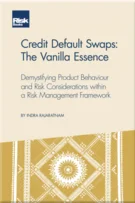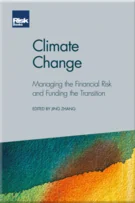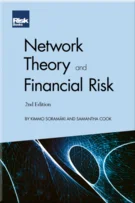From Russian Roulette to Overcautious Decision-making
Introduction
Operational Risk in Four Letters
An Invisible Framework
Small is Beautiful in OpRisk Management
The Business Value of ORM
How to Minimise ‘People Risk’
The Missing Piece
Risk Appetite and Framework
From Russian Roulette to Overcautious Decision-making
The Importance of Preventive KRIs
How to Build Preventive Key Risk Indicators
Unlocking KRIs
Six Steps for Preventive KRIs
Have Your Cake and Eat It
Conduct, Not ‘Conduct Risk’
How to Manage Incentives
Is Reputation Risk Overstated?
What Regulators Want
Conduct & Culture
OpRisk Takes Forward Steps at OpRisk Europe 2014
Modern Scenario Analysis
The Rogue’s Path
Rogue Trading No Training: The Connections
What Brexit Teaches OpRisk
OpRisk Survey Shows the Insidious Effects of Political Risk
Discarding the AMA Could Become a Source of OpRisk
UCL Research Shows that SMA Reforms Introduces Capital Instability and Discourages Risk Management
Memo to Bank CEOs: Treat OpRisk with More Respect
Don’t Let the SMA Kill OpRisk Modelling
In one of the opening statements of his 2001 book, Fooled by Randomness, Nassim Nicholas Taleb highlights the necessity of judging decision-making by the risk taken rather than by its outcome. His illustration is Russian roulette: just because you survive the game doesn’t mean it was clever to play.
As a mother, my equivalent example would be your kids crossing a road without looking: you may be happy to find them alive on the opposite side of the road, but rather than celebrate their success, you would probably give them the lecture of their life on the dangers they faced due to their carelessness.
A parallel is sometimes drawn between careless actions and excessive risk-taking in financial institutions: if a proprietary trader exceeds his limits and turns a profit, the right reaction is not to congratulate them for their success, but rather to blame them for the inconsiderate risk they took.
However, Russian roulette and excessively risky trading are not exactly comparable decisions: in the first instance, there is only downside (you can die) and no upside (unless you play for a large sum of money, perhaps); in other words, you can only lose.
STUPID, NEEDLESSLY RISKY
Copyright Infopro Digital Limited. All rights reserved.
As outlined in our terms and conditions, https://www.infopro-digital.com/terms-and-conditions/subscriptions/ (point 2.4), printing is limited to a single copy.
If you would like to purchase additional rights please email info@risk.net
Copyright Infopro Digital Limited. All rights reserved.
You may share this content using our article tools. As outlined in our terms and conditions, https://www.infopro-digital.com/terms-and-conditions/subscriptions/ (clause 2.4), an Authorised User may only make one copy of the materials for their own personal use. You must also comply with the restrictions in clause 2.5.
If you would like to purchase additional rights please email info@risk.net









